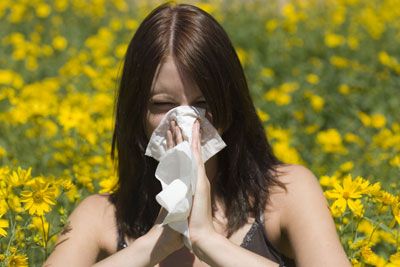Food allergies are a sign that your immune system misidentifies certain proteins. Instead of recognizing that these proteins are safe, your body thinks they're harmful invaders. When you eat something you're allergic to, your immune system releases an antibody called immunoglobulin E. That antibody then releases a team of chemicals to fight off the allergen. One of the chemicals is called histamine, and histamine is responsible for most of your allergic symptoms.
The symptoms of a food allergy vary from person to person. While some people get a runny nose, others swell up. Edema is a type of swelling in which you retain fluids between your cells or in your circulatory system. Edema, also called dropsy and fluid retention, is most common in the legs, ankles and feet. Some people also end up with a swollen face and hands. Abdominal pain also commonly accompanies the painful swelling, as does shortness of breath. Edema isn't a disease, though; it's always a symptom of something else -- like a food allergy. The food allergy that's most likely to cause edema is a dairy allergy; the symptoms typically set in 12 to 36 hours after you eat the culpable food.
Advertisement
However, edema can be caused by a number of other conditions aside from food allergies. Hormonal changes due to menstruation or pregnancy are common causes for edema. So are heart, liver, kidney and thyroid disease. High or low blood pressure can cause edema, along with a diet high in salt content. Some people suffer from edema because of certain medications they take. Edema can also be the result of blocked channels -- also known as lymphedema. High altitudes -- especially mixed with intense exercise -- are a known cause of edema, too.
Advertisement


